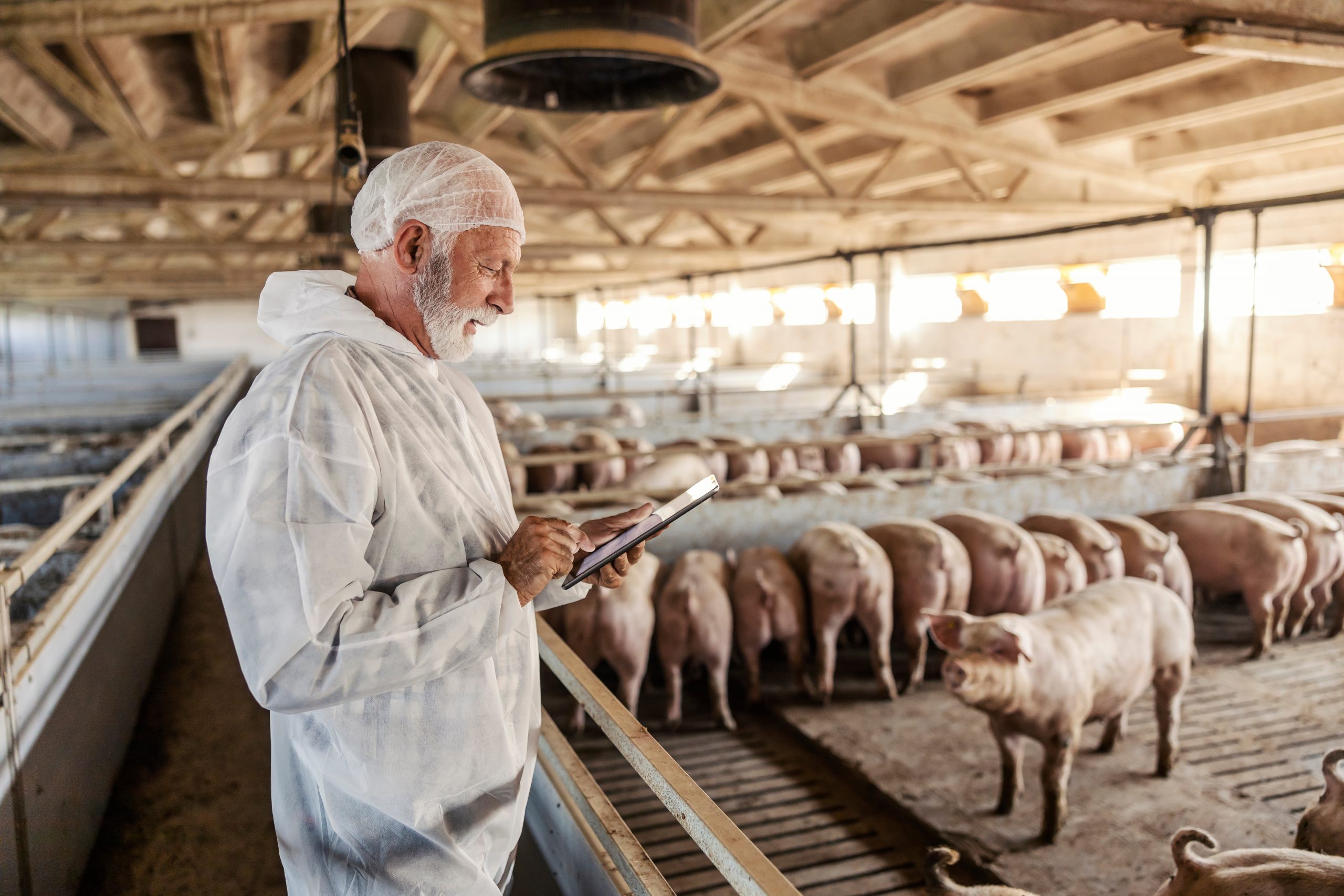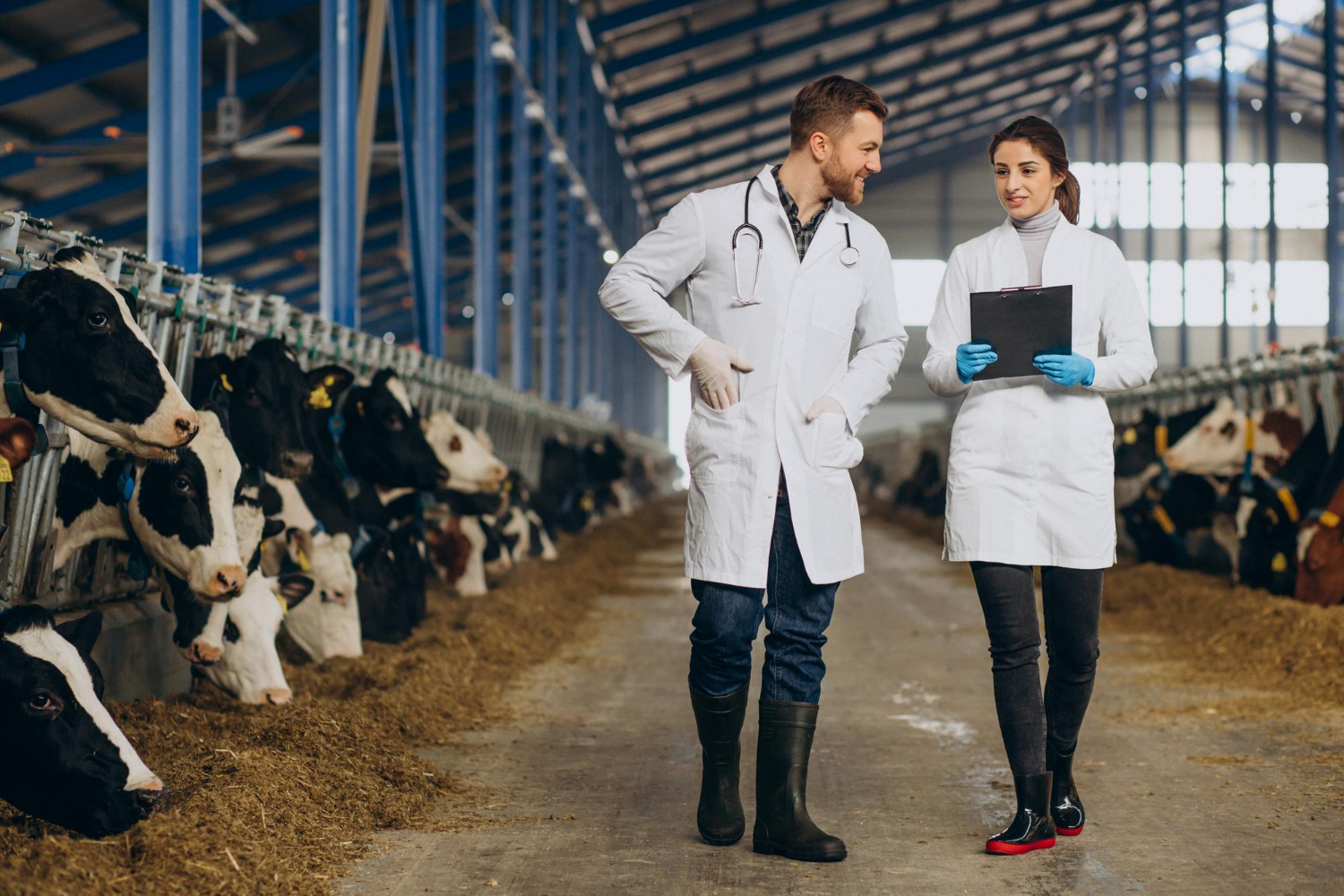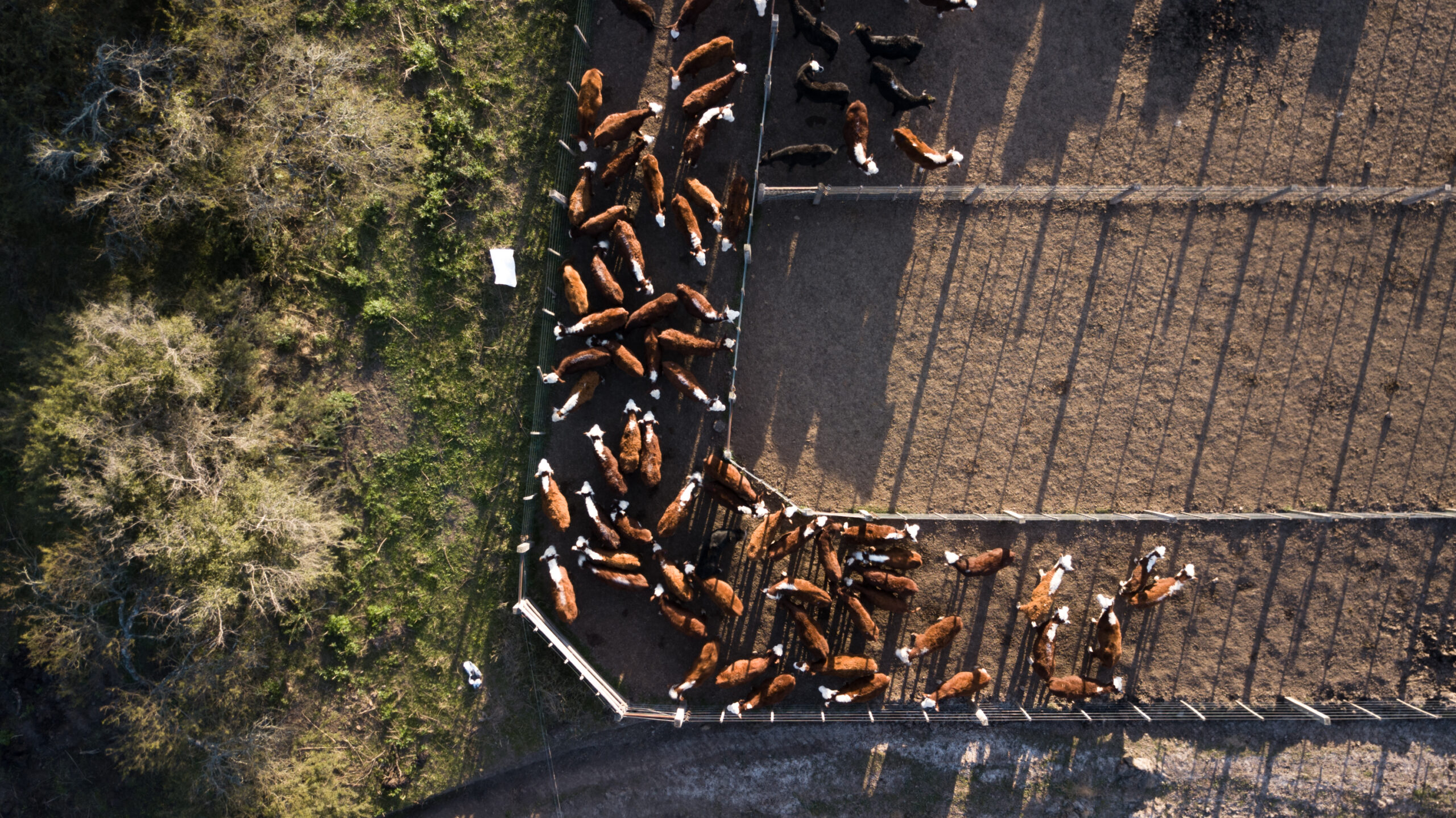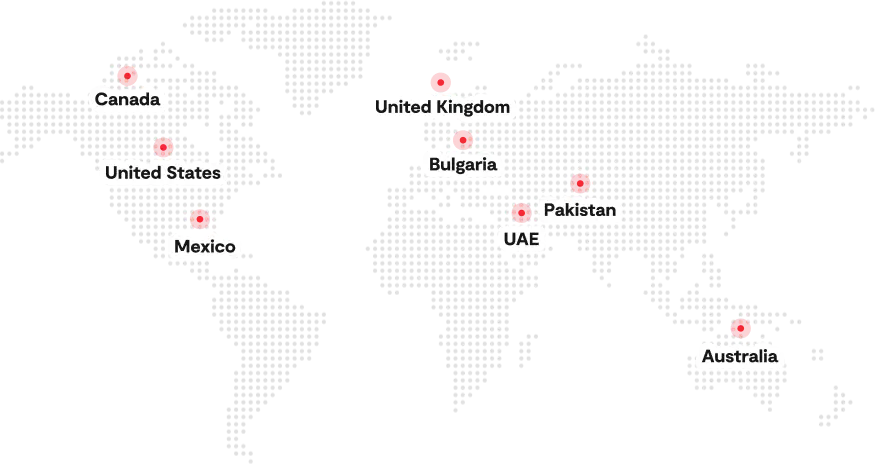Livestock health ensures the sustainability of the cattle industry. These days, farmers are very concerned about the health of their livestock since each animal is a major investment.
According to research, 70% of American cow herds are susceptible to blackleg, a 100% deadly bacterial illness that can be prevented with a simple vaccination. Hence, it is very important to immunize animals against pathogens.
In this blog post, we’ll first look at the significance of livestock vaccination. Then, we’ll examine how record-keeping software is important for automating and improving this procedure for cattle.
Understanding Livestock Vaccination
Livestock vaccination is crucial to preserving the health and well-being of cattle and other animals. In addition to ensuring the farms’ long-term viability, it improves animal welfare as well. Furthermore, it guarantees that the food derived from these animals is free of contaminants and meets all food safety regulations.
Here are some key aspects highlighting the importance of vaccination protocols in maintaining livestock health:
Prevention of Diseases
Vaccination is the most effective method to prevent the spread of diseases among livestock. A vaccine contains antigens that are similar to pathogens, allowing the immune system to produce antibodies and build immunity. This keeps a herd healthy by preventing the spread of illnesses. It also reduces the risk of zoonotic diseases, which can be transmitted from animals to humans.
Cost-Effective
Vaccination is not only good for the health of the animals, but it also raises the profitability of raising cattle. By immunizing against illnesses, people can avoid expensive medical treatments, medications, and veterinary care. For farmers, it results in significant cost savings.
Food Safety
Producing safe and high-quality food items like meat and dairy requires healthy cattle. By vaccinating the cattle properly, the food items are guaranteed to be free of pollutants and diseases.
Herd Immunity
Herd immunity is a collective defense mechanism that arises when a significant portion of a cattle herd becomes immune to a particular disease. Livestock vaccination protocols aim to achieve herd immunity, minimizing the spread of diseases within the group and reducing the need for individual treatments.
Sustainable Livestock Farming
Vaccination in livestock reduces antibiotic demand by farmers, reducing expenses, addressing antibiotic resistance, and ensuring safe, wholesome animal products.
Challenges in Manual Record-Keeping of Livestock Vaccination
The following are some of the main challenges with manual record-keeping and management of vaccination in livestock:
Human Error
Manual record-keeping is prone to human errors like missing documents or incorrect data entry. These mistakes may result in the wrong vaccination schedules, endangering the welfare of the cattle.
Data Overload
The number of immunizations increases along with the size of cow herds. The manual management of this enormous volume of data becomes increasingly laborious and time-consuming. It takes important resources away from other crucial farm operations.
Missed Vaccinations
Manually keeping track of each cattle’s immunization regimens can result in missed doses, which could jeopardize the immunity and well-being of the herd.
Limited Analysis
Manual record-keeping cannot often analyze historical cattle vaccination data for trends or patterns in cattle health. It becomes challenging to proactively address emerging health issues.
Automating and Improving the Livestock Vaccination Process
While the importance of vaccination for livestock is clear, managing vaccine processes and maintaining accurate records can be daunting without the proper tools. Historically, manual record-keeping was the main method used for vaccine management.
A new age has, however, begun with the introduction of vaccination software. These digital technologies transform how farmers manage cow vaccines by automating data collection, storage, and analysis.
Technology integration has become crucial for productive and efficient operations in the constantly changing world of livestock management. Several technological breakthroughs drive the digital revolution of data-driven vaccination procedures, but vaccination record-keeping software is a critical element. Let’s look at how cattle management software distinguishes itself from manual record-keeping systems:
Centralized Data Management
Digital livestock record-keeping software centralizes vaccination-related data management, eliminating the need for physical documentation and providing easy access to critical information from a single digital spot.
Automated Reminders
They automate scheduling and give alerts when immunizations are approaching. This feature protects the herd’s immunity by ensuring no cattle skip their injections.
Accuracy and Error Reduction
Human error is a problem with manual record-keeping. By offering organized data entry areas, it lowers this risk by decreasing the likelihood of errors and inconsistencies.
Data Analysis
Modern technologies can examine vaccination data to find patterns or trends in cattle health. Thanks to this data-driven strategy, farmers may make well-informed choices about vaccination schedules and herd management.
Security and Accessibility
Digital records are more secure and easier to back up than paper records. Additionally, cloud-based solutions offer accessibility from anywhere with an internet connection.
Key Features of Livestock Vaccination Record-Keeping Software
Two key features that significantly contribute to the efficiency of these cattle record-keeping software solutions are the streamlined management of vaccination data and the automation of reminders and notifications.
Streamlining Vaccine Data
The capacity of vaccination record-keeping software to make livestock vaccination data management simple is one of its key features.
Centralized Data Storage
It provides a centralized digital storage platform for vaccination-related data, allowing farmers to access and manage information from a single, organized database, eliminating the need for dispersed paper records.
Structured Data Input
These systems provide fields for structured data input that lead users to enter vaccination information. This systematic approach ensures consistency and correctness in data entry.
Easy Retrieval
The vaccination record-keeping software makes it simple to retrieve vaccination records. Farmers spend less time retrieving records by easily searching for specific animals or vaccination dates.
Data Organization
The program sets up immunization records in a clear, logical order. Farmers can use animals, dates, vaccine types, and any other pertinent criteria to categorize records, making it simple to locate specific information when needed.
Secure Storage
Digital records are generally more secure than paper records. It ensures the integrity and safety of vaccination data, protecting it from damage or loss.
Automating Reminders and Notifications
Another invaluable feature is its ability to automate vaccine schedules and send timely reminders and notifications to farmers. Here’s how this automation works:
Scheduled Vaccine Reminders
Farmers input vaccination schedules, which generate automated reminders to prevent forgetting vaccine dates.
Customizable Notifications
Farmers can set their preferred reminder and notification preferences. They can set the frequency and time of reminders as well as the format (email, Bulk SMS marketing, or app notification).
Real-Time Updates
The program can transmit real-time updates and notifications to inform farmers if the vaccination schedule has to be changed or if additional vaccines are needed because of newly discovered health problems.
Proactive Disease Prevention
By automating reminders, it assists farmers in proactively preventing diseases, which can significantly impact livestock health and productivity.
Benefits of Using Cattle Record-Keeping Software
Here are the key cattle record-keeping software for livestock vaccination:
Enhanced Accuracy
It minimizes human errors in vaccination records by utilizing structured fields and automatic data capture, ensuring precise records and reducing potential health risks to cattle.
Data Management Effectiveness
Digital software centralizes all livestock vaccination-related data, making it accessible from a single location and maximizing accessibility. This saves time and effort by streamlining data retrieval and doing away with needless paperwork.
Automated Scheduling
It can provide timely reminders for forthcoming doses and automate the scheduling of vaccinations. This feature ensures that no cattle miss their immunizations, maintaining the immunity and well-being of the herd.
Inventory Management
Some programs have capabilities that allow farmers to keep track of vaccination consumption and keep an eye on expiration dates. As a result, there is less chance of vaccination shortages because the essential vaccines are always in stock.
Security and Backup
Digital records are safer and simpler to back up than paper documents. It guarantees the availability and integrity of immunization data even in unanticipated circumstances or natural disasters.
Remote Accessibility
Farmers can access vaccination records using cloud-based solutions from any location with an internet connection. Larger enterprises or situations where farm managers need remote data access will benefit most from this.
Cost Savings
These solutions help save costs by streamlining livestock vaccination procedures and requiring less human labor, which eventually helps the farm’s bottom line.
Implementing Digital Livestock Vaccination Solutions
Let’s explore the process of selecting cattle record-keeping software and discuss how these digital vaccine solutions can seamlessly integrate with broader livestock health management systems.
Ease of Use
Look for something that is simple to use and has a clear user interface. The program should be easy to navigate for farmers and farm staff.
Customization
Make sure it enables you to modify livestock vaccination guidelines to suit your unique requirements. It should allow for variances in vaccination regimens, animal species, and other farm-specific needs.
Scalability
Think about how well the program will scale as your farm does. You’ll need a solution to handle more animals and data without affecting performance as your herd grows.
Data Security
Give solutions that provide strong data security measures. Sensitive data in your immunization records needs to be shielded from unwanted access or data breaches.
Support and Updates
Pick a software vendor that provides trustworthy customer service and frequent updates. If there are problems or questions, you’ll need help and updates to make sure your program is up-to-date.
Many software programs allow you to automate your customer service. You can also search for alternatives, from human resources to chatbots. A good AI chatbot agency can fulfill all your user’s queries at scale. Chatbots can also help users with upcoming updates.
Cost-Benefit Analysis
Assess the cost of the software against the benefits it provides. Consider factors like time savings, improved accuracy, and potential cost reductions in other areas of farm management.
User Reviews
Do your homework, read user reviews, or ask other farmers who have used the software for their recommendations. Their experiences may provide insightful information.
Success Story – Green Pastures Ranch
Background
Green Pastures Ranch is a medium-sized cattle ranch located in the Midwest. They faced challenges with manual record-keeping of cattle vaccinations, which was time-consuming and error-prone, and they could not analyze data for informed decision-making.
Digital Vaccine Management Solution
In 2022, Green Pastures Ranch decided to implement a digital vaccine management system to address these challenges. They chose user-friendly software to create customized vaccination schedules, record vaccination data, and integrate with their broader livestock health management system.
Results
- Improved Accuracy: With structured data entry fields and automated data capture, Green Pastures Ranch significantly reduced data entry errors. It improved the accuracy of vaccination records.
- Efficiency Gains: The digital system streamlined their vaccination processes, automating scheduling and sending timely reminders. It eliminated missed vaccinations, ultimately preserving the health of their cattle herd.
- Data-Driven Decisions: Over time, the software helped Green Pastures Ranch identify trends in their cattle’s health. They adjusted their vaccination protocols for better disease prevention and herd management by analyzing vaccination data alongside other health metrics.
- Cost Savings: The ranch saved money on veterinary bills and medications by preventing disease outbreaks and reducing the need for antibiotic treatments.
- Integration: The digital vaccine management system is integrated with their broader livestock health management system. It provided a comprehensive view of animal health and simplified data analysis and reporting.
Data Security in Digital Livestock Vaccination – Challenge & Solution
Implementing digital vaccine solutions in livestock management can bring numerous benefits, but it also presents certain challenges. One of the most critical challenges is ensuring the data security associated with vaccine record-keeping software. Here’s how to tackle this concern:
Challenge
Data security is one of the most pressing concerns when implementing digital solutions in agriculture. Protecting sensitive livestock vaccination data from unauthorized access, breaches, or cyber threats is paramount.
Solution
Select a Reputable Software Vendor
Choose a vaccine record-keeping program first from a respected, long-standing vendor with a solid track record of data security. To evaluate their reputation, look up testimonials and references.
Encryption Mechanisms
Check to see if the software uses reliable encryption mechanisms to secure the data. Data should be encrypted during transmission and when stored on servers or other devices.
Access Controls
Implement stringent access controls within the software. It includes user authentication mechanisms, role-based access, and permissions. Only authorized personnel should have access to sensitive vaccination records.
Regular Software Updates
Keep the software up-to-date with the latest security patches and updates. Vulnerabilities can emerge over time, and updates often include fixes.
Secure Hosting Services
If your software is cloud-based, your hosting service or PHP cloud hosting provider, including options like a virtual private server (VPS), should abide by the rules and standards for security set forth by the industry. For data centers, look for certifications like ISO 27001.
Monitoring and Auditing
To identify any unexpected activity or security breaches, utilize monitoring tools and carry out routine audits of user actions within the software.
Data Backups
Implement regular and automated data backup procedures. Backups should be stored securely offsite to ensure data recovery in case of system failures or cyberattacks.
Policies for Data Retention
Clearly define your policies for data retention. Vaccination records no longer required should be deleted or archived to reduce the danger of holding onto needless data.
Incident Response Plan
Develop an incident response plan outlining steps to take in case of a data breach or security incident. Ensure all staff are familiar with this plan and their roles in mitigating potential risks.
By following these security measures and best practices, you can significantly enhance the data security of your vaccine record-keeping software. You can safeguard sensitive vaccination records from unauthorized access and potential threats.
Future of Livestock Health Management
The future of livestock health management holds immense promise as technology continues to play a pivotal role in shaping more efficient, sustainable, and data-driven agricultural practices. This transformation is driven by various technological efficiencies in livestock health that will revolutionize how livestock health is monitored and managed.
Advancements in Digital Vaccine Management
Precision Vaccination
Digital solutions in livestock health management enable farmers to customize vaccination protocols based on individual animals’ health history, genetics, and environmental conditions. This maximizes vaccine effectiveness and minimizes medication use.
Real-time Monitoring
With the development of IoT (Internet of Things) technology, livestock can be outfitted with wearable gadgets that continuously check their health indicators. Real-time data transmission from these gadgets to digital vaccine management systems permits prompt response to emerging medical problems.
Big Data Analytics
Digital vaccine management systems will use big data analytics to identify trends in cattle health, improving decision-making for vaccination schedules, disease prevention, and herd management.
Blockchain Technology
Using blockchain technology to manage vaccines will improve supply chain traceability and transparency. Farmers and consumers can trust the legitimacy of vaccinations and the reliability of immunization records.
Artificial Intelligence (AI)
AI algorithms are transforming disease prediction and vaccine scheduling by processing vast data, providing early warnings, and suggesting vaccination strategies.
Sustainability and Efficiency
Reduced Antibiotic Use
Automated vaccine administration programs ensure timely animal vaccinations, reduce antibiotic use for preventable infections, align with sustainable farming methods, and reduce antibiotic dependency.
Resource Allocation Optimization
Digital solutions aid farmers in optimizing resource allocation, saving money by avoiding unnecessary treatments and pharmaceuticals, and preventing disease outbreaks through prompt immunization.
Lower Environmental Impact
Sustainable livestock farming aims to minimize environmental impacts. Automated vaccine management contributes to this goal by reducing the use of medications and their potential residues in soil and water.
Improved Cattle Herd Health
Animals in good health are more productive and need fewer resources to maintain them. Improved herd health due to automated vaccine management increases the productivity of livestock farming operations and enhances the process of raising beef cattle.
Making Data-Driven Decisions
livestock vaccination management systems provide crucial information for sustainable cattle production, enabling informed decisions to maximize resources, reduce waste, and support long-term farming methods.
Conclusion
The cornerstone of contemporary cattle health management is record-keeping software. It gives accuracy, effectiveness, and data-driven judgment. It improves cow health results by customizing vaccination regimens, enabling real-time monitoring, and making data analysis easier. Through reduced antibiotic use and resource optimization, it also promotes sustainability.
This technology ushers in a more responsible and practical future for cattle husbandry while ensuring transparency and traceability. In summary, record-keeping software enhances the cattle vaccination process while also automating it, ensuring our livestock’s health, welfare, and long-term viability.
FAQs
How Does Cattle Record-Keeping Software Improve Livestock Vaccination Efficiency?
A cattle record-keeping software automates livestock vaccination processes, creates precise schedules, sends reminders, and ensures timely vaccinations.
What Types of Livestock Vaccination Data Should Be Recorded?
Vaccination data should include date, type, dosage, animal identification, veterinarian, batch number, expiration date, and any adverse reactions observed.
Are There Any Training Requirements for Using Livestock Vaccination Software?
Training for vaccination software is crucial for accurate data entry, efficient use, and security, and providers typically provide resources and support to help users get familiar with the software.
Can Small-Scale Farms Benefit from Digital Livestock Vaccination Management?
Digital vaccine management offers accuracy, efficiency, and data-driven insights to small-scale farms, preventing disease outbreaks, reducing veterinary costs, and improving livestock health regardless of farm size.
How Can Farmers Ensure Data Privacy and Security in Livestock Vaccination Record Keeping?
Choose a reputable cattle management software provider, implement user access controls, use encryption, keep software updated, back up data, educate staff on cybersecurity, monitor user activities, and develop an incident response plan.





